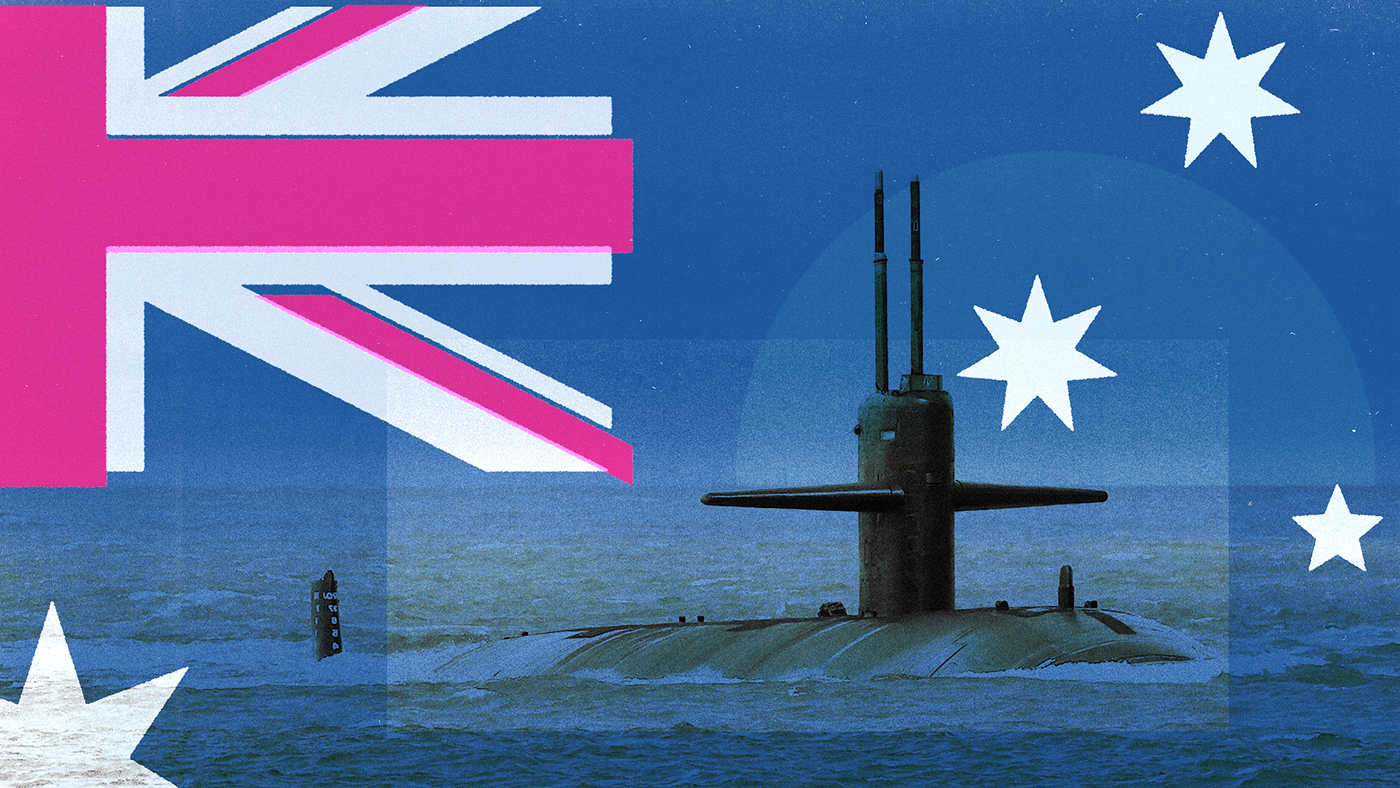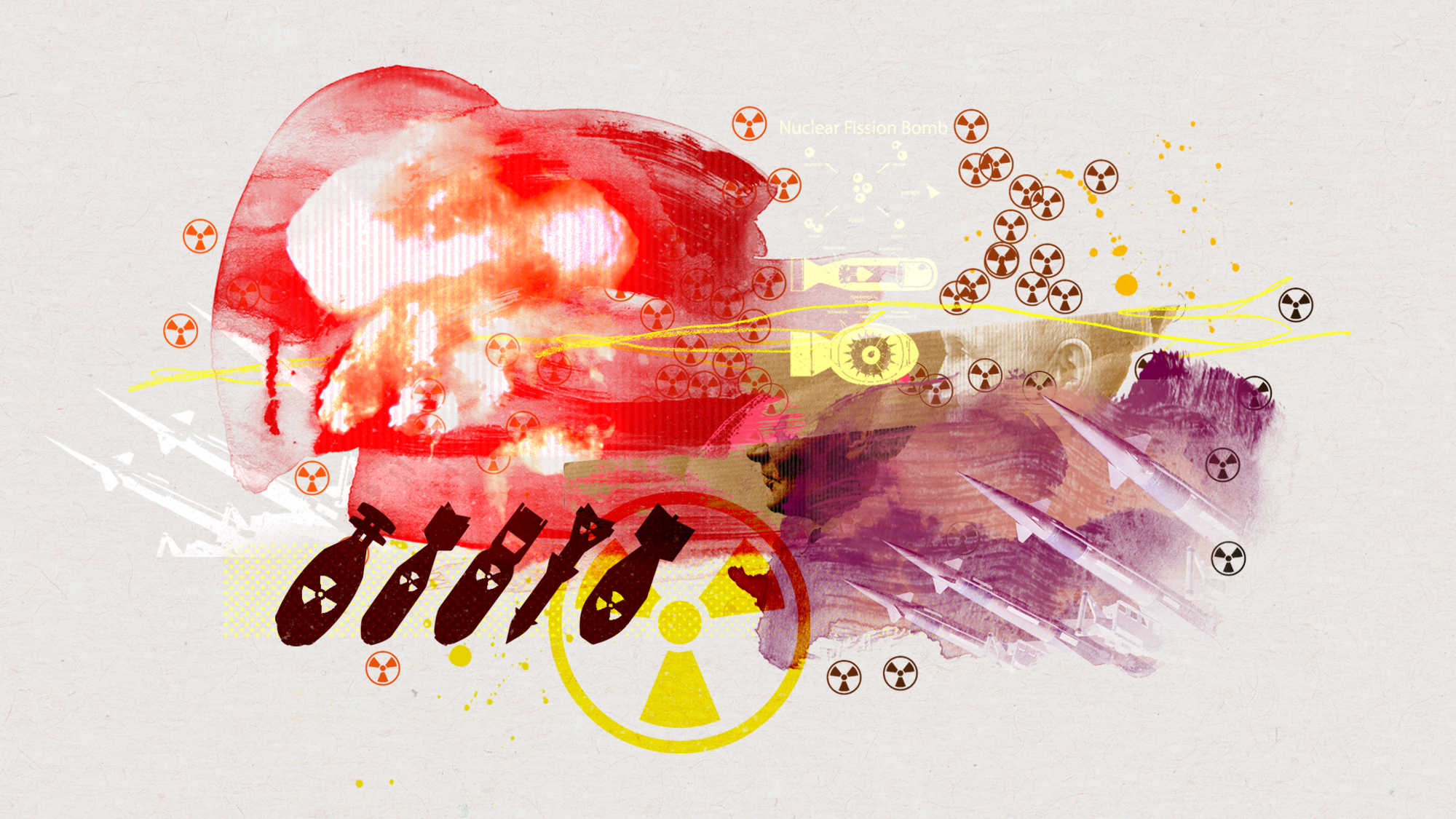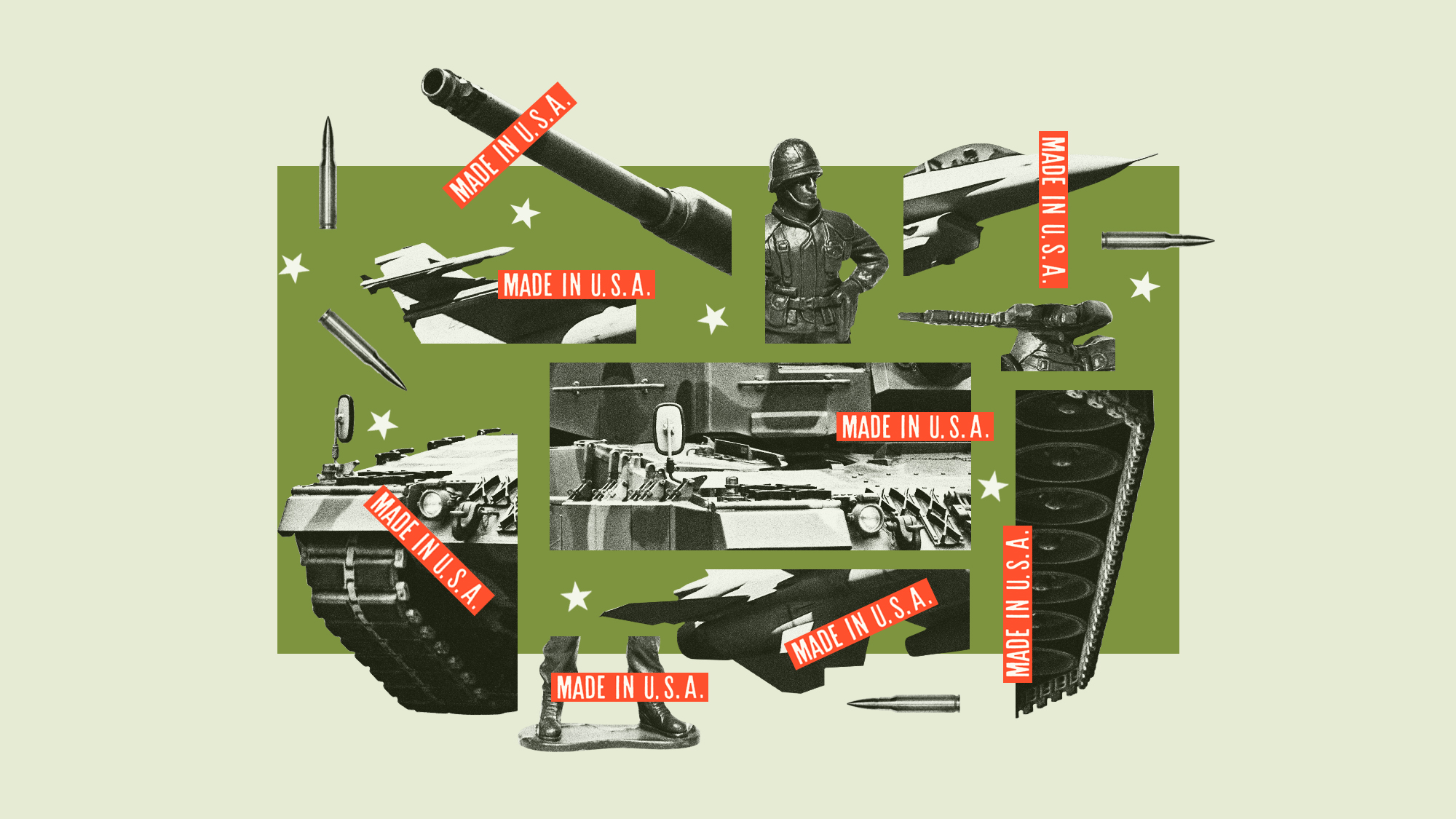Aukus: does pact herald an Indo-Pacific Nato?
Nuclear submarine deal next phase of landmark military and security alliance between UK, US and Australia

A free daily email with the biggest news stories of the day – and the best features from TheWeek.com
You are now subscribed
Your newsletter sign-up was successful
Rishi Sunak joined his US and Australian counterparts in San Diego today to set out how their three countries intend to work together to build the next generation of Australian nuclear submarines.
Sky News reported that UK ministers have “high hopes” that Australian Prime Minister Anthony Albanese will announce the purchase of a British-designed fleet of subs at the summit, which represents the next stage of the Aukus agreement.
“A sprawling military pact”, first announced 18 months ago, Politico said Aukus “promises to bring seismic changes to how the world’s most secretive military technologies are shared among allies, with strategic implications on how the three longtime friends can band together to stare down China in the coming decades”.
The Week
Escape your echo chamber. Get the facts behind the news, plus analysis from multiple perspectives.

Sign up for The Week's Free Newsletters
From our morning news briefing to a weekly Good News Newsletter, get the best of The Week delivered directly to your inbox.
From our morning news briefing to a weekly Good News Newsletter, get the best of The Week delivered directly to your inbox.
What did the papers say?
Most immediately, said Politico, “Australia is expected to serve as a forward base for a small number of U.S. submarines by the end of this decade”. The purchase of at least three US-made Virginia-class attack subs will follow in the 2030s, with joint UK-Australia nuclear-powered submarines based on the British Astute-class boats expected to come into service in the late 2040s and 2050s.
“However all of the details shake out in the end, the result will be a historic sharing of ultra-sensitive technology that could bulk up the three nations’ navies in Beijing’s backyard,” said the news site.
Yet the multi-decade project also “involves considerable risk”, especially for Australia, admitted John Blaxland, professor of international security and intelligence studies at the ANU’s Strategic & Defence Studies Centre, in The Guardian.
Albanese “is walking a foreign policy tightrope”, said The Washington Post: “pushing ahead with an Aukus agreement that deepens his nation’s dependence on the American military for decades to come, while also trying to thaw the chilly Australia-China relationship he inherited last year. On one side sits Australia’s greatest ally; on the other, its biggest trading partner.”
A free daily email with the biggest news stories of the day – and the best features from TheWeek.com
The big question, asked the South China Morning Post, is whether Australia is “becoming ‘more dependent’ on the United States following the signing of the Aukus pact, or will the alliance make the country a safer place?”.
The paper published a series of surveys about the trilateral partnership that “have revealed a complex set of sentiments among Australians about the country’s current geopolitical climate, as US-China tensions grow”.
Rejecting claims by some critics that the agreement will only exacerbate tensions further, Blaxland argued: “If handled with discretion and with neighbours treated respectfully and briefed in as best as possible, the new arrangements can be expected to bolster security and stability in the region, not undermine them,” adding: “Weakness invites adventurism, it is said. This high-stakes and high-risk plan is about reducing the prospects of adventurism.”
With China identified as the single biggest threat to geopolitical security, perhaps more importantly Aukus is “looking like the seed of a Nato-type organisation for the Pacific”, said Ross Clark in The Spectator, “with the aim of providing a united front against possible future Chinese aggression in the region, just as Nato is against Russian aggression in Europe”.
With Japan and Australia announcing a co-operation between air forces, which will see some Japanese fighter planes based in Australia and vice versa, “it is not hard to see these two initiatives evolving into a formal ‘POTO’ – a Pacific Ocean Treaty Organisation – which might also involve other Pacific rim countries which are not aligned to China”, he said. “With Xi Jinping still believed to have his eyes on Taiwan, the rise of a counter military allegiance in the Pacific couldn’t come at a more appropriate moment.”
What next?
“For Britain, there is the danger of being dragged into conflict on the opposite side of the world,” said Clark, “but Aukus is a sign of opportunities to come as Britain seeks to forge new relationships post-Brexit.”
While in the US, Sunak is also set to unveil the new integrated review of UK defence and foreign policy, which has been updated in the wake of Russia’s invasion of Ukraine. City A.M. reported that the prime minister “will also confirm a new long-term military spending ambition of 2.5% of GDP and say the UK will ramp up defence investment with a £5bn boost over the next two years”, funding that will bolster ammunition stocks, modernise the UK’s nuclear enterprise and fund the next phase of the AUKUS programme.
Following decades of a “declinist fashion in British foreign and security policy” dating back to the 1960s, “the UK’s involvement in the Aukus project demonstrates in no uncertain terms that it is ready to reclaim its natural role East of Suez”, said The Telegraph. “It is the first really practical and substantial manifestation of the British tilt to Asia.”
-
 Political cartoons for February 15
Political cartoons for February 15Cartoons Sunday's political cartoons include political ventriloquism, Europe in the middle, and more
-
 The broken water companies failing England and Wales
The broken water companies failing England and WalesExplainer With rising bills, deteriorating river health and a lack of investment, regulators face an uphill battle to stabilise the industry
-
 A thrilling foodie city in northern Japan
A thrilling foodie city in northern JapanThe Week Recommends The food scene here is ‘unspoilt’ and ‘fun’
-
 New START: the final US-Russia nuclear treaty about to expire
New START: the final US-Russia nuclear treaty about to expireThe Explainer The last agreement between Washington and Moscow expires within weeks
-
 The history of US nuclear weapons on UK soil
The history of US nuclear weapons on UK soilThe Explainer Arrangement has led to protests and dangerous mishaps
-
 Did Trump just end the US-Europe alliance?
Did Trump just end the US-Europe alliance?Today's Big Question New US national security policy drops ‘grenade’ on Europe and should serve as ‘the mother of all wake-up calls’
-
 Vladimir Putin’s ‘nuclear tsunami’ missile
Vladimir Putin’s ‘nuclear tsunami’ missileThe Explainer Russian president has boasted that there is no way to intercept the new weapon
-
 Is UK's new defence plan transformational or too little, too late?
Is UK's new defence plan transformational or too little, too late?Today's Big Question Labour's 10-year strategy 'an exercise in tightly bounded ambition' already 'overshadowed by a row over money'
-
 What are the different types of nuclear weapons?
What are the different types of nuclear weapons?The Explainer Speculation mounts that post-war taboo on nuclear weapons could soon be shattered by use of 'battlefield' missiles
-
 Is Europe's defence too reliant on the US?
Is Europe's defence too reliant on the US?Today's Big Question As the UK and EU plan to 're-arm', how easy will it be to disentangle from US equipment and support?
-
 Ukraine-Russia: are both sides readying for nuclear war?
Ukraine-Russia: are both sides readying for nuclear war?Today's Big Question Putin changes doctrine to lower threshold for atomic weapons after Ukraine strikes with Western missiles